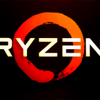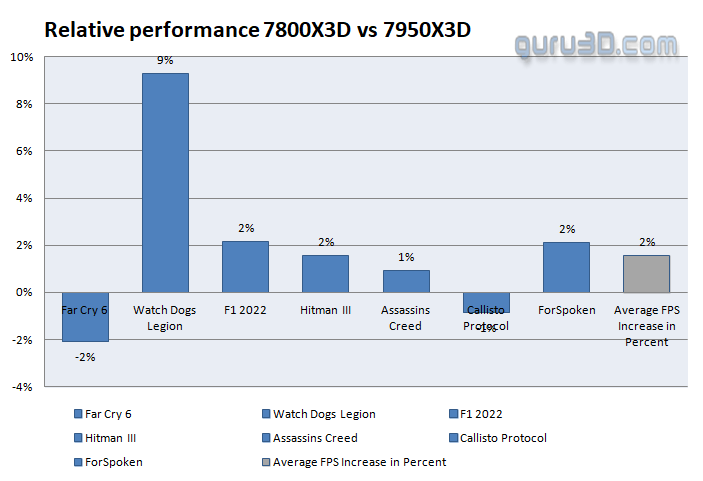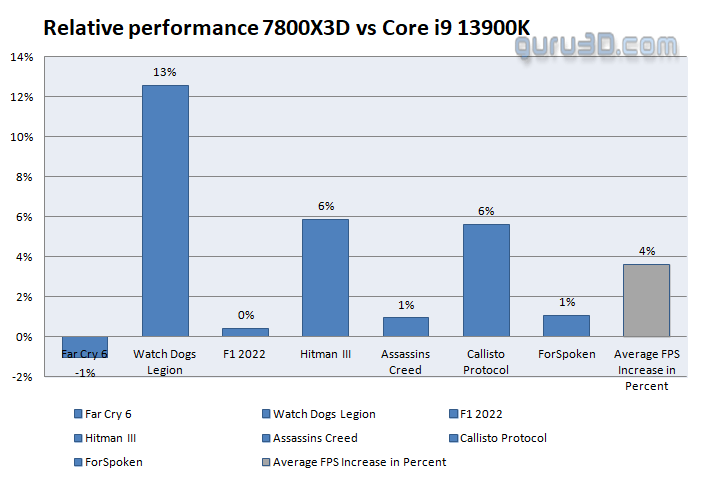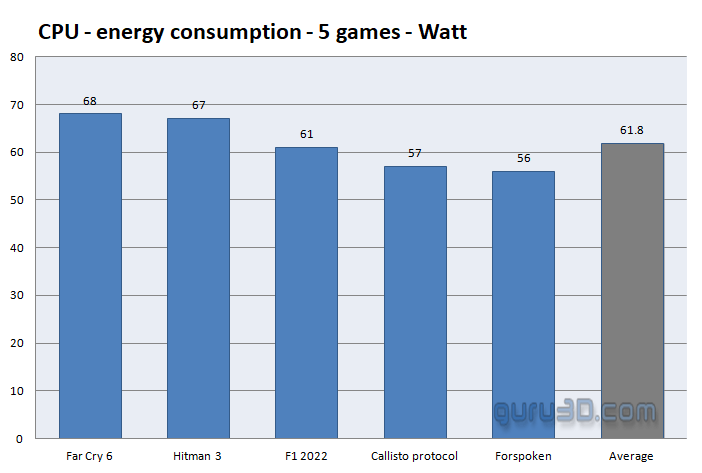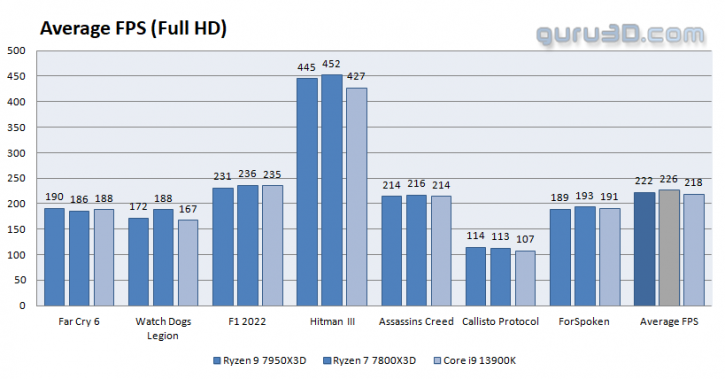Conclusion
Final Words
AMD has refined the 7800X3D in a way that makes it less competitive in both single and multithreading compared to other 8-core Series 7000 processors. The base and turbo clocks have been significantly lowered, but the X3D cache works extremely well for gamers, reducing CPU overhead. As the cheapest Series 7000 X3D SKU, this processor provides excellent game performance, even when paired with the fastest GPUs available, making it a pure win. While other products may be slightly faster for single and multithreaded applications, this SKU is still plenty fast for 90% of its intended functionality. Intel's Raptor Lake SKUs are as fast as, or even faster than, comparable processors in their base design. However, AMD has a significant advantage in terms of energy efficiency. This processor is designed to operate within a 120W target TDP, and at that wattage, it can deliver game performance close to that of the Core i9 13900K, while running at 80 degrees Celsius with a decent heatpipe-based cooler. Another advantage of this product is that there is no software dependency, unlike the 7900X3D/7950X3D.
Gaming performance
The Ryzen 7 7800X3D will come with eight CPU cores or 16 threads, along with an additional 64 MB silicon die of 3DV-Cache. The processor has a 120 W TDP rating and boasts a base frequency of 4.2 GHz, which can be boosted up to 5.0 GHz. The application performance of the 7800X3D is quite similar to that of the Ryzen 7 7700(X), some benchmarks have shown differences due to the cache differntial. However, it's important to note that the 7800X3D is not primarily designed for productivity purposes, but rather, it's intended for use in gaming rigs.
With its eight cores, the 7800X3D can even match the 7950X3D in gaming.
Notably, in most situations, the 7800X3D can match or even surpass (gaming) the Core i9-13900K from Intel. One should also take note of the substantial price discrepancy between the two processors, as the 7800X3D is priced at $450 while the 13900K retails at $570. However, in tasks requiring multiple threads, Intel's processor will outperform the 7800X3D. Additionally, for those searching for more budget-friendly options with comparable performance, the 13700K and 13600K are worth considering.
And then, if we look at the Core i9 13900K versus the emulated 7800X3D, it's free from latency compared to the 7950X3D and performs even a notch better; at Full HD, we measure 4% faster performance overall.
Energy efficiency and heat
The AMD X3D CPU showcases remarkable energy efficiency and outperforms its competitors in terms of power consumption during gaming. Our simulated testing of the Ryzen 7 7800X3D demonstrated a power requirement that was half of what other CPUs typically need. This reduction in power consumption benefits the user's power bill and also helps to mitigate heat buildup during prolonged gaming sessions. In fact, we found that the processor can be adequately cooled by a mainstream LCS cooler. Furthermore, the delayed release of the 7800X3D may prove advantageous, as it provides ample time for AMD and its motherboard partners to address any lingering issues, and for overclockers to uncover new ways to enhance its performance.
I also like to show you the above table; this is the average energy used per game, and as you can see the processor just uses 62W (average) in these games. That makes the 7800X3D a very energy-efficient beast.
Price and value
The asking price for the Ryzen 7 7800X3D has been kept the same as the 7900X, which is good news for PC gamers who are in the market for a new processor. While the overall application performance may be slightly slower, recent tests have shown that some applications actually run faster on this new processor. The prices for the different models are as follows: Ryzen 9 7950X3D for $699, Ryzen 9 7900X3D for $599, and Ryzen 7 7800X3D for $449.
Conclusion
As I conclude, I am happy to have had my hands on the much-anticipated 7800X3D finally. Equally important, there has been a recent drop in motherboard prices, and the B650 is now compatible with X3D after a BIOS upgrade, and DDDR5 prices are decreasing rapidly. The question arises whether one should opt for the 7800X3D or the reliable and tested 7950X3D. The answer is simple: if you are interested in content creation, have other heavy workloads, or future-proofing your system, then the 7900X3D/7950X3D is undoubtedly an exceptional choice. On the other hand, if you primarily intend to use your system for gaming and do not have stringent workload demands, then the 7800X3D could be the processor you need at a more reasonable price level. Overall, the 7800X3D's exceptional energy efficiency and game performance make it an intriguing option for gamers. However, if you require a bit more multi-threaded performance for other workloads, it would be worthwhile to consider the 7900X3D and 7950X3D.
- Sign up to receive a notification when we publish a new article
- Or go back to Guru3D's front page.
